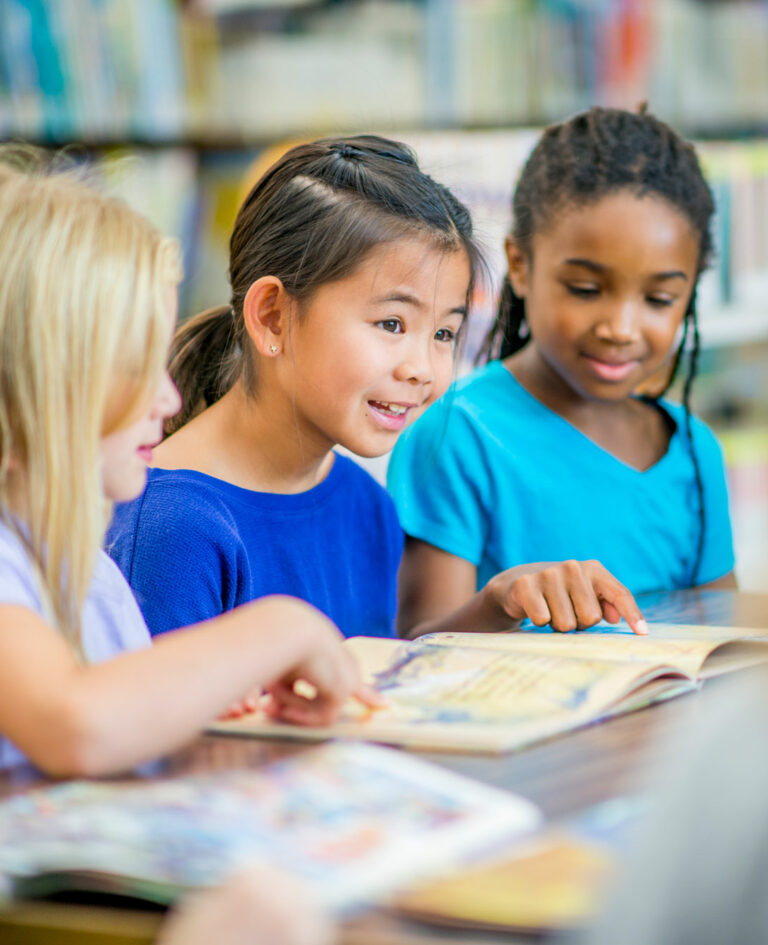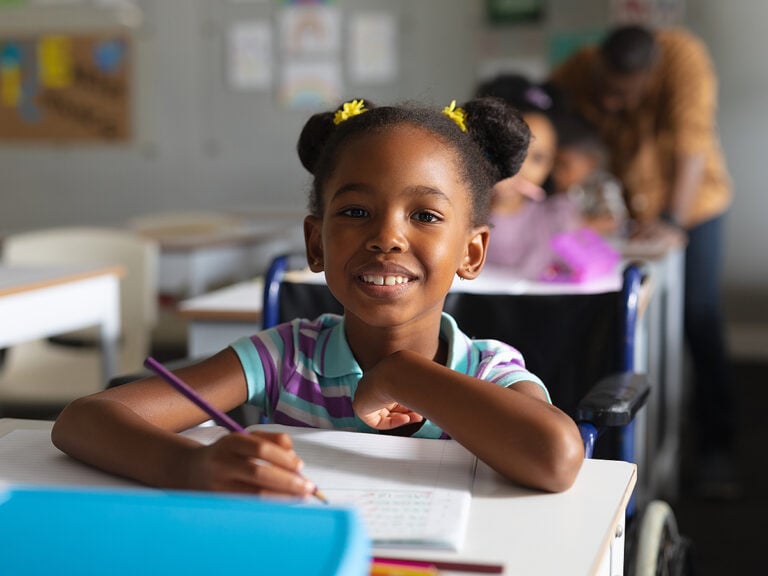Why Enrolling Your Child in a Private School is a Smart Educational Choice
Wiki Article
Factors to Think About in Deciding On Independent School: Understanding What Each Institution Has to Offer for Your Child's Growth
Selecting a personal institution for a kid includes cautious factor to consider of numerous factors. Parents have to assess the scholastic educational program and teaching approaches of numerous establishments. They ought to also check out extracurricular activities that can enhance their kid's experience. In addition, recognizing the school's society and values is crucial for alignment with family beliefs. As economic implications play a substantial role, it is important to consider tuition expenses versus available scholarships. Just how do these components shape a kid's growth course?Academic Educational Program and Training Philosophy
When choosing an independent school, comprehending the academic curriculum and training viewpoint is vital, as these components considerably affect a kid's educational experience. Parents ought to investigate the institution's method to teaching and the topics supplied, as this can differ significantly amongst institutions. Some schools might take on a conventional curriculum concentrated on core topics, while others might highlight project-based knowing or interdisciplinary studies.Furthermore, the teaching viewpoint can form class characteristics and pupil interaction. Schools that focus on a student-centered strategy typically foster crucial thinking and collaboration, while those with a more structured setting might concentrate on self-control and fundamental skills.
Extracurricular Tasks and Enrichment Programs

Relevance of Diverse Activities
While scholastic quality is often focused on in personal institutions, the significance of diverse activities, consisting of after-school activities and enrichment programs, can not be overemphasized. These activities play an important role in a youngster's all natural growth, supplying possibilities for imagination, important reasoning, and team effort. Taking part in various pursuits permits pupils to discover their rate of interests, uncover new passions, and create vital life skills, such as time management and self-control. Furthermore, diverse activities can promote a sense of belonging and community, improving the general school experience. By joining clubs, sporting activities, and imaginative endeavors, students not just enrich their education yet also produce memorable experiences that add to their individual growth. Diverse tasks are essential to fostering all-round individuals.Effect On Social Abilities
Just how do extracurricular activities and enrichment programs affect a kid's social abilities? These programs supply vital chances for children to communicate with peers beyond the traditional classroom setup. Involving in clubs, arts, or sports cultivates conflict, teamwork, and interaction resolution. Kids find out to browse diverse social atmospheres, boosting their ability to develop and form friendships compassion. Additionally, participating in various activities encourages self-esteem, as kids handle new challenges and responsibilities. As they collaborate on projects or complete in teams, they also gain important experience in leadership and teamwork. Inevitably, an abundant selection of extracurricular offerings contributes considerably to a child's social development, preparing them for future interpersonal interactions in both scholastic and individual contexts.Institution Culture and Values
Recognizing the institution society and values is important for parents examining exclusive education alternatives, as these components substantially affect a kid's general experience. Each establishment symbolizes unique philosophies, traditions, and social norms that form trainees' everyday lives. As an example, an institution that emphasizes inclusivity might promote a helpful environment, motivating kids to create empathy and regard for diverse histories. Conversely, institutions that focus on academic excellence might create a competitive ambience, motivating trainees to intend for high achievement.In addition, the alignment of a college's values with a household's beliefs can improve a youngster's feeling of belonging, strengthening positive habits and mindsets. Parents must explore the school's objective declaration, review its disciplinary plans, and observe pupil interactions to evaluate the pertinent society. Ultimately, an institution's society and worths substantially impact not only scholastic success however also individual development, furnishing kids with necessary life abilities for their future.
Class Size and Student-Teacher Proportion
Course size and student-teacher ratio play an important function in the academic experience provided by private schools. Smaller sized classes typically cause improved specific focus, cultivating better trainee engagement and understanding. Study shows that these elements can significantly affect finding out results, making them necessary factors to consider for parents.Advantages of Smaller Courses
Smaller sized class sizes significantly improve the educational experience by cultivating much more tailored interest from educators. In these atmospheres, instructors can tailor their direction to meet private pupil needs, enabling a much deeper understanding of the material. With fewer pupils, educators can a lot more easily identify those that may be struggling and give prompt support. This close interaction can grow stronger relationships in between instructors and trainees, developing an encouraging atmosphere helpful to discovering. Additionally, smaller sized courses usually advertise greater participation, as pupils might feel much more comfy articulating their inquiries and thoughts. This vibrant motivates collective discovering and boosts total classroom interaction. Eventually, the advantages of smaller sized classes contribute remarkably to an all-round instructional experience that focuses on pupil development and development.Impact on Understanding Outcomes
The advantages of smaller sized classes prolong past customized attention, greatly influencing finding out end results. Research consistently shows that a reduced student-teacher proportion cultivates boosted engagement, enabling instructors to customize instruction to private demands. This environment encourages energetic engagement, essential reasoning, and much deeper understanding of the product. In smaller settings, instructors can extra effectively determine and resolve learning gaps, causing boosted scholastic efficiency. Private School. In addition, pupils often feel much more comfortable revealing their thoughts and asking concerns, which can additionally improve the knowing experience. Conversely, bigger class dimensions may limit communication and comments, potentially preventing trainee growth. Therefore, when reviewing private institutions, households must think about course dimension and student-teacher proportions as significant elements affecting their youngster's educational successArea Involvement and Adult Involvement
How can community engagement and adult involvement enhance the instructional experience secretive colleges? These elements play a vital function in improving the learning environment. When parents actively join college activities, they promote a sense of belonging and assistance amongst trainees. This participation can take numerous forms, such as volunteering for occasions, going to meetings, or signing up with committees, which not only reinforces the institution community but likewise boosts interaction between households and teachers.Neighborhood involvement extends this support by attaching the institution with local companies, companies, and social organizations (Private School). Such collaborations offer pupils with special learning opportunities, including teaching fellowships and workshops, which add to their total development. Furthermore, institutions that prioritize these connections often create a more comprehensive atmosphere, enabling varied viewpoints to be shared. Inevitably, community engagement and adult participation offer to produce a supportive and collaborative environment that contributes positively to students' academic and social success
Financial Considerations and Scholarships
Steering the economic landscape of exclusive click for more info institutions can be a complicated process for families. Tuition prices differ significantly, typically influenced by factors such as area, look at this website facilities, and the school's track record. Family members must evaluate their financial situation, taking into consideration not only tuition however additionally extra expenses like attires, charges, and extracurricular activities.Several independent schools use scholarship programs intended at drawing in varied trainee populaces - Kindergarten. These scholarships can make and relieve monetary worries quality education accessible to family members with varying income levels. It is crucial for moms and dads to ask about the schedule of need-based and merit-based scholarships and recognize the application processes involved
In addition, some schools offer versatile layaway plan that can reduce prompt economic pressures. By evaluating all financial aspects and discovering scholarship opportunities, families can make enlightened choices that align with their academic goals and monetary restraints.
Regularly Asked Concerns
Exactly How Do Schools Assistance Students With Knowing Disabilities?
Schools sustain students with discovering specials needs with customized education and learning strategies, specialized mentor methods, and extra sources. They usually supply tailored interventions, access to support team, and comprehensive environments to foster academic and psychological growth.like this
What Is the College's Strategy to Technique and Actions Monitoring?
The college's approach to technique and behavior administration emphasizes positive support, clear expectations, and restorative methods. Staff actively involve pupils in discussions regarding actions, fostering a helpful setting that encourages individual duty and accountability.Exactly How Do Colleges Deal With Student Transitions, Such as Relocating to Greater Grades?
Schools usually offer organized assistance during student adjustments, consisting of alignment programs, mentorship opportunities, and tailored academic preparation. These actions aim to relieve stress and anxiety, advertise modification, and guarantee pupils are gotten ready for the challenges of higher qualities.What Are the College's Policies on Innovation Usage in the Classroom?

Just How Do Schools Evaluate Trainee Progression and Provide Feedback to Parents?
Schools examine pupil progression via regular assessments, consisting of tests, tasks, and class involvement. Responses is given to parents via progress report, parent-teacher seminars, and online sites, guaranteeing continual interaction about each youngster's academic growth.
Report this wiki page